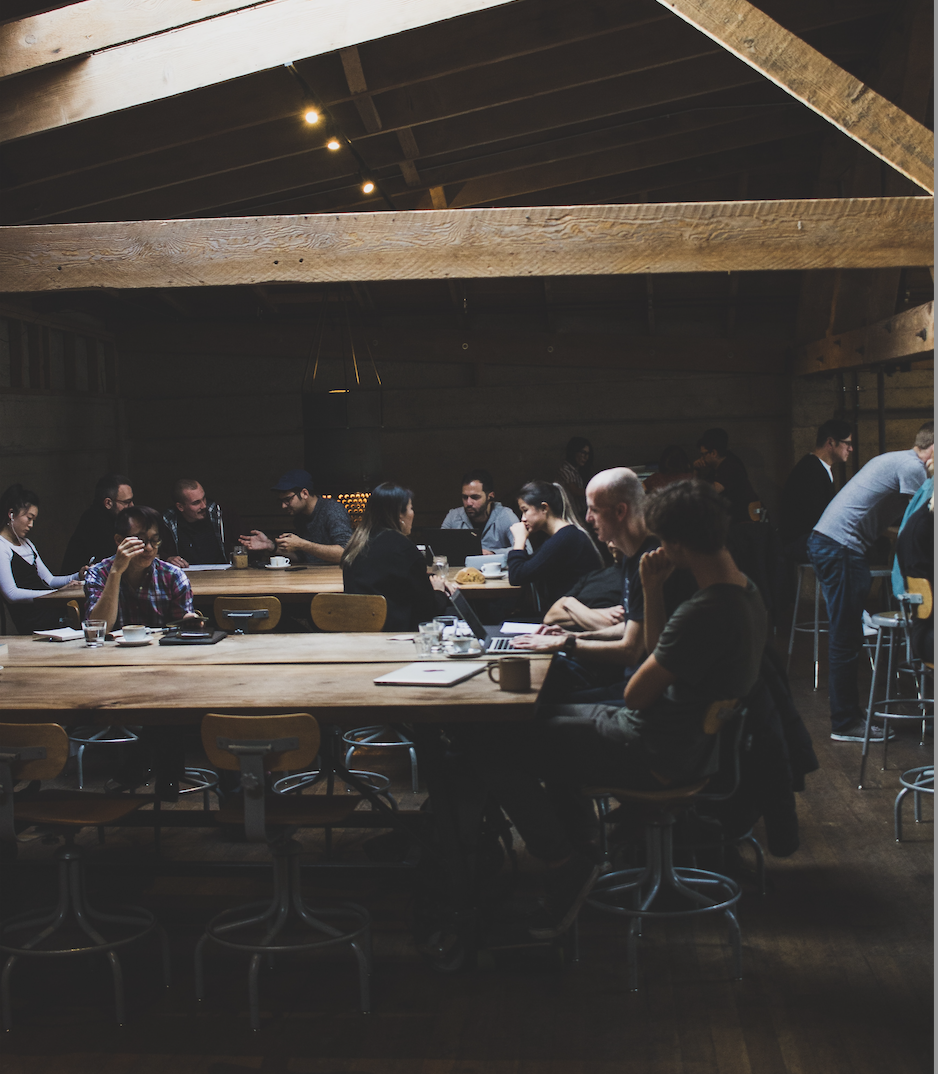7 Leadership Lessons from a Year of Massive Disruption

by Rich Fernandez, CEO of SIY Global
When COVID took hold and forced us all into lockdown, as a leader, I knew I had much work to do. Yet, like everyone, I had many many more questions than answers. I had a sense of acute uncertainty-which for me at times took the form of deep anxiety and worry. While experiencing all of this as a person and realizing it was perfectly natural given the circumstances-“feeling the feels” so to speak-I also felt the pressure of needing to show up, lead the team, and make consequential decisions in my role as CEO of a global educational training institute. And what I learned was that these two things-authentically feeling difficult emotions and driving forward with vision and energy-can happen together. In fact, such times of massive disruption offer an opportunity as a leader to hone just this-the practice of navigating complex and conflicting circumstances.
For context: our business was severely affected by COVID.
The business model we were operating at the time was built largely on delivering live, in-person trainings in a wide array of organizations and communities around the world. This work was led by an extensive global network of highly qualified, certified teachers and partners across scores of countries. Practically overnight, the vast majority of our engagements were canceled for the foreseeable future. As things played out, almost all of our revenue for two whole quarters disappeared. It was also evident that clear thinking, forward vision, and decisive action were needed. Our challenge was to ensure we could stabilize the business, meet the moment by offering tools that could be of service to our stakeholders, and plan for future success and business continuity given the massively changed ecosystem in which we were operating. But before all of that-and to be perfectly honest here-the question I found myself confronting was, “how to be the leader of an enterprise in the midst of turmoil when I was feeling pretty terrible myself?”
Fortunately, I was able to draw on a deeply talented, dedicated and cohesive team; the support of family and friends; and, importantly, the experience of daily practice of the very things we teach-mindfulness, meditation, compassion, emotional intelligence, resilience and renewal skills. All of this was central to helping me and the team navigate the challenges presented by COVID. I’m happy to say that today our business has stabilized and is thriving again. So I thought it might be helpful to share from the perspective of a leader exactly what practices helped me and the team navigate the past year of the COVID pandemic.
.jpg?width=731&height=450&name=Screen-Shot-2022-03-15-at-9_42_26-AM-opt(1).jpg)
The key leadership lessons from this time can be grouped into 3 overarching domains: leading self, leading the team, and leading the work. In each of these domains, the following seven insights and practices were foundational in navigating the massive disruptions during this period of time.
Leading Self
It was evident that to show up as a leader to the team and to our stakeholders, I first had to find a way to care for myself so I was in the right mental and emotional state to lead through the crisis. I recalled a quote from the famous leadership thinker Peter Drucker who said, “your first and foremost job as a leader is to take charge of your own energy and then help to orchestrate the energy of those around you.” So I practiced two types of personal energy management during this time:
1. Radical self-care.
Prioritizing the healthy habits of mind, heart, and body that promoted resilience and well-being, and being sure I practiced them every day, multiple times a day. This included:
- Morning meditation: You can find some basic meditation practices from our organization here.
- Physical activity: Making sure I got outdoors for some fresh air and broadening of perspective, even if limited by the lockdown-this included things like walking the dog around the block or gardening for extended periods in my backyard.
- Connecting with friends and mentors who could offer support, guidance and encouragement. Every day for 2 months, for example, I attended a morning meditation and talk offered in the karma yoga tradition. Gathering remotely with people around the world to reflect on the principles of universal love and service was extremely edifying and uplifting.
- Journaling: Paying special attention to my thoughts and emotions and writing them down so I could better understand, reflect on, and manage what I was experiencing.
- Taking inspiration: Actively mining inspirational books, poetry, and quotes to help broaden my perspective and move with wisdom, clarity, and calm.
2. Self-compassion
Recently my colleague Steph Stern and I wrote that self-compassion may be The Most Needed, but Counter-Intuitive Leadership Skill. That’s because, simply stated, self-compassion means treating yourself like you would a friend, especially in the face of challenges or setbacks, mistakes and failures; it’s an essential strength for resilience.
The skill of self-compassion is counter-intuitive for leaders because many mistakenly believe it means being overly passive or soft on oneself. Instead, self-compassion means being kind and understanding towards yourself—especially knowing that the challenge you face will require courage and resolve. Being self-compassionate when facing times of disruption helps leaders to free up energy to meet challenges, rather than engaging in unproductive self-criticism or judgment.
For example, when COVID hit I was flooded with questions and anxiety. But I worked on giving myself permission to take enough (but not too much) time and space to take care of myself, heal, and refresh my resolve. I did so consciously and intentionally by contemplating all of the challenges I/we were facing through this lens of self-compassion. I oriented myself towards the work to be done with an attitude of kindness and goodwill, which was tremendously freeing in my role as a leader.
If you are curious about how to actively practice self-compassion, you may find this wonderful 5-minute practice on self-compassion and acceptance useful.

Leading the Team
In disruptive times more so than usual, it’s critical that leaders “model the way” by embodying the qualities they aspire for in their teams and organizations. It is also important that leaders do what they can to be a source of strength and inspiration for the team. With this in mind, I tried to offer a sense of the key qualities to the team to help us collectively navigate the difficult times:
3. Compassion
Simply stated, compassion means to be of service and benefit to others, which is born out of a sense of connectedness. We knew that what we had to offer the world-mindfulness and compassion-based well-being and resilience tools-was needed more than ever during COVID times. We also knew that we had to actively cultivate within ourselves and with each other these same sets of practices-because you can’t give what you don’t have. So in addition to connecting regularly as a team and practicing together, we began to find new, free, accessible ways of offering our tools to the world. We keyed in on compassion as a central operating principle.
4. Togetherness
Early on in the lockdown we decided as a team that we would make the sacrifices, cut costs where possible, and roll up our sleeves to stay together and stabilize the business. We fondly called this “keeping the band together.” It gave us a sense of mutuality and cohesion across the team, which helped us tremendously as we worked to pivot our business to meet the moment and remain sustainable. Through it all, in other words, our culture remained strong because we had a sense of togetherness.
5. Renewal
Since our client and public-facing business operations were largely suspended during COVID, we mobilized as a team to begin to re-invent our offerings for the online world. This represented a wholesale innovation of our product offerings, including new, shorter, more modular offerings that were better suited to virtual delivery. It required re-thinking, testing, and iterating rapidly. It required significant relationship management with our customers, partners, and teaching community. But we took this as an internal challenge to refresh and renew our organization’s offerings due to the disruptions in the world.
This challenge became tremendously energizing for the team and spawned a whole new set of innovations and learnings that would likely not have happened otherwise. Ironically, COVID offered us the opportunity-or perhaps more accurately stated, the “forcing function”-to renew our work in the world.
We also knew (from data we had gathered such as traffic to our site and the range of inquiries we were receiving) that the world not only wanted what we had to offer but needed it more than ever.
So we approached our work as leaders in the field of wellness and resilience with two last principles in mind.
6. Radical Generosity
This principle has as its focal point being generous, as much and as best as you can. We quickly decided to offer a range of free practice opportunities, thought leadership articles and vlogs, web events, scholarships, and other offerings that could promote access and impact for those interested in learning and practicing the skills of mindfulness, compassion, resilience, and overall emotional intelligence.
We also took it as a policy approach with our partners and teachers to innovate and approach our collective work with speed, clarity, and care. Sometimes this meant slightly longer time horizons as we worked to ensure the integrity and quality of our product offerings, but we did so with as much speed as was prudent and with the intention of radical generosity.
7. Fierce Optimism
Finally, knowing that our offerings (including the new online versions of our products and services) were having meaningful impact (we had collected robust comparison data), we continued innovating and testing new solutions with a sense of optimism and urgency. This same fierce optimism fuels us today as we look towards a future where we have tremendous opportunities to expand our work and a whole new set of opportunities is opening up more and more to our organization and global community. We are anticipating that our best days are still ahead of us.
***
In sum, the reflections offered here are by no means an exhaustive set of leadership qualities that are needed in times of disruption and change. But they represent the practices that I personally-and we as a team-have worked to embody as we navigated the COVID crisis over the last year+. I would offer that these practices and principles may be “onward leading” toward the deepening of wise and compassionate leadership.
Onward and deeper together then, toward the furtherance.
Rich Fernandez, CEO
Learn more about our leadership programs for organizations or feel free to connect with us.
